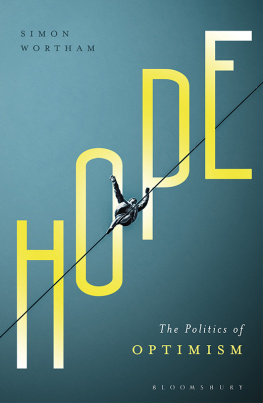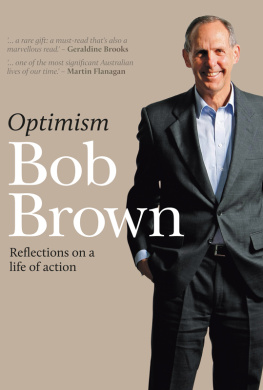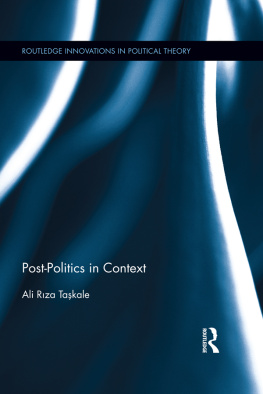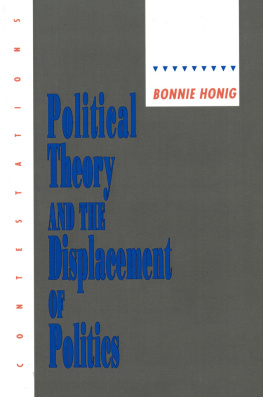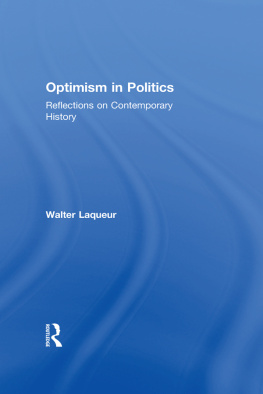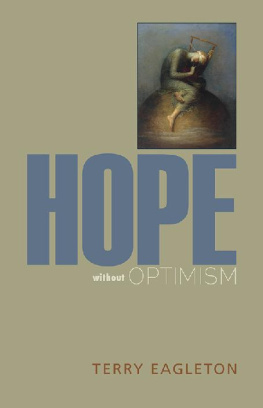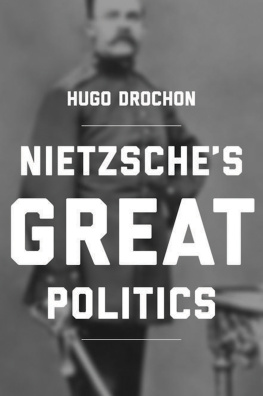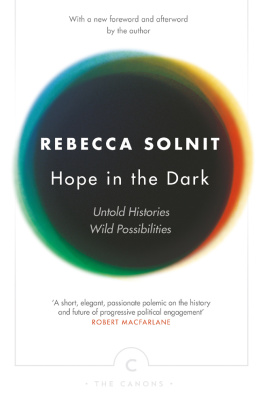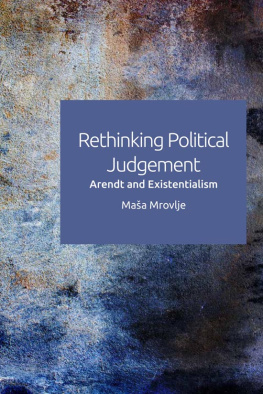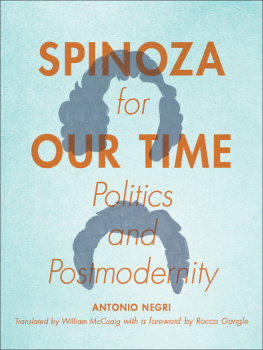HOPE
HOPE
The Politics of Optimism
SIMON WORTHAM

ALSO AVAILABLE FROM BLOOMSBURY
Enduring Time, Lisa Baraitser
Slow Philosophy: Reading against the Institution, Michelle Boulous Walker
Some of the material in this book was originally published as Antinomies of the Super-Ego: Etienne Balibar and the Question of the Psycho-Political in Philosophy Today, 61.4 (2017). I am grateful for the permission to reproduce, with a few changes, here.
Hope is traversed by the hatred of others, by resentment.
One could say that hope is not the imaginary of an ideal justice dispensed at last, but what accompanies the patience of truth, or the practical universality of love, through the ordeal of the real From this point of view, hope has nothing to do with the future.
Alain Badiou, Saint Paul: The Foundation of Universalism, trans. Ray Brassier (Stanford, CA: Stanford University Press, 2003), 9497
In his 2017 book, The Courage of Hopelessness, Slavoj iek offers a wide-ranging analysis of what he sees as the impasses of global capitalism And yet, as I suggest in this book, one may detect a modicum of something like hope transecting the antithetical task of thought which Adorno himself contrasts to the business of such frantic optimism, as he puts it; just as the hopeless courage of a certain post-Hegelian left may reinvest hopes in the very process of eschewing them.
Arguments concerning the continuing significance and perceived limits of hope for radical leftist thought today are, in many respects, at the heart of this book, and much could be said about the seeming impasse or mismatch between the hugely pessimistic diagnoses of contemporary politics which often prevail today and the optimistic resources of a leftist politics of resistance and transformation that is also a feature of our political landscape. Factored into this equation, of course, would need to be the capacity of post-Trump politics to appropriate, invert or, better, evacuate the meaning of our cultural and political lexicon through an idiomatic performativity recognizable in each of its gestures and acts, creating a political theatre in which supposedly familiar distinctions are merely the resource for highly charged forms of play. Here, what may be pessimistic or optimistic in the first place becomes far from certain, and it is likely that, rather than these terms providing a basis for stable position-taking, one would need to evaluate the very fluid cross-currents that now flow through any interchange they may have, whether that interchange is overt or implicit. Writing during the first decade of the twenty-first century, Lauren Berlant identified a cruel optimism coursing through our relationship to contemporary culture and politics, whereby each of the attachments that we form (inherently optimistic though they may be, whether they feel like it or not) has a habit of confronting possibility with its own more or less immediate limits, so that
If, for some, it seems remarkable at first glance that hope is problematic and indeed double-edged for radical thought that, rather than being driven by hopes bright side, the radical left increasingly resorts to a combustible zero point from which utter despair is converted into liberatory agency I do not believe it is sufficient simply to offer reminders of a more desperate revolutionary tendency that detects the origins of authentic emancipation One could not imagine a more ironic echo of optimisms central treatise.
For Nietzsche, writing towards the end of the nineteenth century, pessimism provides the prototype for European nihilism, which for him emerges at the intersection of religious disillusionment with the psychological conditions of contemporary culture.
In one of his last psychoanalytic texts, Freud recalls the misplaced and premature optimism of 1920s America as a part of
The politics and political possibilities of psychoanalysis come to the fore towards the end of this book. In an important essay by tienne Balibar, the 1920s debate between Freud and Hans Kelsen over the political import of a psychoanalytic conception of the super-ego is re-examined. (each explored further in this book), take us beyond the false alternatives of optimism or pessimism, breaking their deadlock through powerful forms of thinking that, to my mind, do considerable justice to the complexly entangled resources that each has to offer. And I suspect the situation of contemporary politics demands it.
Two years before it was to be judged, the Prussian Royal Academy chose for their 1755 prize-essay competition the theme of Popes optimism. While Kant himself decided not to compete, submissions from Lessing, Mendelssohn and Reinhard (who was eventually to win) testify to the currency of debates concerning this topic throughout the cultural and intellectual world of the German Enlightenment. It was Leibnizs Theodicy, appearing in 1710, that chiefly fuelled these debates. While in England the optimism of Shaftesbury and Pope had taken its own course during the first half of the eighteenth century, Leibnizs contention that this was the best of all possible worlds had provoked strong criticism, both in France by Bayle and Le Clerc and in Germany by Wolff, Daries and Crusius. Essays submitted to the Prussian Royal Academy for the 1755 prize were supposed to examine Popes cognate dictum, everything is good. Authors were asked to properly elucidate its meaning and significance, notably in terms of the wider climate of contemporary philosophy, and to establish the grounds for either a philosophical justification or rejection of Popes position.
The deep resonance of such debates throughout Europe at this time is confirmed by the fact that their intensity grew in response to current events. For example, the question of optimism powerfully funded reactions to the occurrence of natural disasters such as the Lisbon earthquake, which happened during the very same year that the prize-essay competition was to be judged. Faced with the terrible destruction of the town and most of its inhabitants, Voltaire was moved to abandon optimism. He savages the Leibnizian world view in his poem on the Lisbon disaster, which concludes that Leibnizs divine creator falls short because as the architect of an already optimal world he denies flawed humanity the very possibility of hope. Widely regarded as a stepping stone to Voltaires Candide and his view of the problem of evil (Lisbon also features in Voltaires picaresque novel), the poem is brutally critical of optimistic philosophy. While Rousseau had written to Voltaire to contest his position on the subject, Kant had reacted to the earthquake by writing three short texts which challenged the view that philosophical optimism was incompatible with the incidence of such events.
Reinhards prize-winning entry, which allied Pope to Leibniz in its criticism of the optimist position, fired more controversy and polemic as the unsuccessful entrants rallied against him, Mendelssohn and Lessing joining forces to malign the idea that Popes literary brand of optimism was worthy of comparison to Leibnizian philosophy in their essay Pope a Metaphysician! Meanwhile, in 1759 the year Candide appeared Kant decided, as he had done in previous years, to announce his lecture course by appending details to a short text on subject-matter presumably chosen to cultivate an audience: this time, a defence of Leibnizs proposition that ours is the best of all possible worlds. This publication, entitled An Attempt at Some Reflections on Optimism, no doubt prompted by texts and events in the wake of 1755, in turn provoked hostile reaction as another scholar, Daniel Weyman, misconstrued its contents as a direct attack on his own recently completed thesis on the topic, publishing a fierce attack on Kant within days its appearance (one Kant chose to ignore).
Next page
